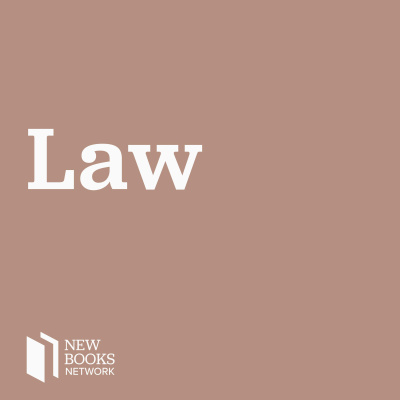Sinopsis
Interviews with Scholars of the Law about their New Books
Episodios
-
Valerie Hebert, “Hitler’s Generals on Trial: The Last War Crimes Tribunal at Nuremberg” (University Press of Kansas, 2010)
27/08/2010 Duración: 01h04minClausewitz famously said war was the “continuation of politics by other means.” Had he been unfortunate enough to witness the way the Wehrmacht fought on the Eastern Front in World War II, he might well have said war (or at least that war) was the “continuation of politics by any means.” Hitler was terribly specific about this. The Slavs, he said, were Untermenschen (subhumans). The Communists were Judeo-bolschewisten (Jewish Bolsheviks). Soviet soldiers were keine Kameraden (not comrades-in-arms). The East was future German Lebensraum (living space). All this meant that the ordinary rules of armed conflict had to be suspended. The German armed forces were to conduct a Vernichtungskrieg, a war of annihilation. The German military had never been in the business of wanton destruction. On the contrary, it prided itself on being the most professional fighting force in the world. It was admired for many things, but two of them were honor and loyalty. And it was the clash of these two otherw
-
Yuma Totani, “The Tokyo War Crimes Trials: The Pursuit of Justice in the Wake of World War II” (Harvard UP, 2008)
04/04/2009 Duración: 01h04minMost everyone has heard of the Nuremberg Trials. Popular books have been written about them. Hollywood made movies about them. Some of us can even name a few of the convicted (Hermann Goering, Albert Speer, etc.). But fewer of us know about what might be called “Nuremberg East,” that is, the Toyko trials held after the defeat of the Japanese in World War Two. These proceedings generated few books, no movies, and therefore occupy only a minor place in Western historical memory. Thanks to Yuma Totani’s excellent book, The Tokyo War Crimes Trials. The Pursuit of Justice in the Wake of World War II (Harvard, 2008; also available in Japanese here), that may change. We should hope it does, because the Tokyo trials were important. They not only helped the Japanese come to terms with what their government and military had done during the war (truth be told, they are still coming to terms with it today), but it also set precedents that are still being applied in international law today. More than tha
-
Laura Wittern-Keller, “The Miracle Case: Film Censorship and the Supreme Court” (University of Kansas Press, 2008)
07/11/2008 Duración: 01h04minDid you ever wonder how we got from a moment in which almost everything on film could be censored (the Progressive Era) to the moment in which nothing on film could be censored (today)? From the Nickelodeon to Deep Throat? The answer is provided by Laura Wittern-Keller and Raymond J. Haberski in their wonderful new book The Miracle Case: Film Censorship and the Supreme Court (University of Kansas Press, 2008). You’ve probably never heard of “The Miracle” or the case it launched in 1949. It’s a short film by Roberto Rossellini about a deranged women who, having slept with a man she believes is St. Joseph, gives birth to a child in a deserted mountain church. Fellini has a bit part (as “Joseph”). Critics generally liked it; Catholics in New York generally didn’t. The Church mounted a campaign against the film and the authorities relented: “The Miracle” was banned on the grounds that it was “sacrilegious.” In 1949, those were fine grounds. Not for
-
Laura Wittern-Keller, “Freedom of the Screen: Legal Challenges to Film Censorship 1915-1981” (University of Kentucky Press, 2008)
04/04/2008 Duración: 01h09sThis week we interviewed Laura Wittern-Keller about her new book, Freedom of the Screen: Legal Challenges to Film Censorship 1915-1981. Both well written and extremely well researched, Freedom of the Screen takes the reader case by case through the history of film censorship in the United States. Dr. Wittern-Keller is a visiting assistant professor of history and public policy at the University at Albany (SUNY) and is also the recipient of the New York State Archives Award for Excellence in Research. Francis G. Couvares, author of Movie Censorship and American Culture, claims that “[Dr. Wittern-Keller’s] research is prodigious and fills a significant gap in the field. All who are engaged in this field will have to incorporate her findings into their stories of movie censorship.” Please become a fan of “New Books in History” on Facebook if you haven’t already.Learn more about your ad choices. Visit megaphone.fm/adchoices

















